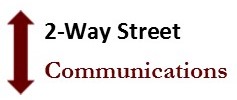Political Endorsement or Member Courtesy?
Across the country, political season never sleeps. From local school board elections to national representation, the election cycle is never ending. Commercials, yard signs, outdoor advertising, e-blasts, phone solicitations…at any given time, a candidate’s message is blasted into your daily reality asking for your vote or your endorsement.
What constitutes a political endorsement? Saying the actual words, ” I/We/Organizational Name endorse this candidate,” or a candidate’s sign is placed on your property is the literal interpretation and physical representation of the word “endorsement.” But are there tacit endorsements? Absolutely! And these can become an issue for civic, business, and other not-for-profit organizations that either do not know the difference or choose to ignore the rules.
To clarify in simple terms, 501(c)3 entities (charitable organizations) are prohibited from engaging in political activity and may only participate in non-partisanship lobbying. Entities classified as 501(c)4 (social welfare programs such as AARP and NRA) may participate in lobbying and other political endeavors, but they must also be proactive in education and providing services to their members. Other non-profit entities such as 501(c)6 business leagues (trade and professional associations) may become involved in political issues, as long as it is not the organization’s primary focus.
In my professional experience, not-for-profit entities that are legally allowed to participate in the political process have limited understanding of what their political role is or should be. They are guilty of either not understanding “political equity” among members, or they fall back on the “disclaimer” defense. Either way, not understanding your organization’s role in political landscape can lead to credibility issues for you, your members, your organization, and your board of directors. To ensure that this does not come to fruition, first and foremost, make sure that your entity’s bylaws are clearly defined and understood by everyone – board members and staff, alike. Furthermore, make sure that the bylaws are followed 100 percent and are not manipulated by board members and/or staff.
I recently read where a 501(c)6 business league promoted a member’s election kick-off event in their membership newsletter. The opponent, who was also a member, did not have their kick-off event publicized as they were not aware that this was an available option afforded the membership. When asked, the business organization said that a formal request needed to be made to promote the event. The request was made, but the event was never publicized, not even after a second request was proffered. No reason was provided by the organization as to why they would not promote the opposition’s event. However, a disclaimer stating that the promotion of the first event was made by member request immediately appeared on all subsequent promotions of the first event. Could this be construed as an endorsement of the first candidate by the organization? Were the bylaws clearly defined and adhered to or was there a bias in the treatment of the respective members by staff or others?
Here is another issue involving another 501(c)6 business league: A fundraising event was held by a league member who was also a local elected official. The beneficiary of the event was a not-for-profit organization for underprivileged children. A local politician, who was also a league member but personally disliked the elected official, raised the issue that advertising the event by the business league was tantamount to a political endorsement of the elected official. In response to the accusation, a disclaimer was added to the posting of the event that it was strictly posting a member’s event and that there was no intended endorsement by the organization.
The question now becomes, does the addition of a “disclaimer” remove the bias, whether perceived or actual, of the posting? If an opponent is not afforded the same opportunity to have their event promoted, does the continued posting of the initial event imply an “endorsement?” What about a personal event held by a public figure? Is there an invisible line that exists between personal and public personas when it comes to member event promotional opportunities? If so, how do not-for-profits navigate those waters?
It is imperative that all not-for-profits know their limitations when it comes to political activity. Review your bylaws to ensure total clarity and be prepared to share them should the need arise. Use your membership communication forums to update members with what is and isn’t acceptable for publication should they be running for office or be involved with someone who is. And lastly, remember what your mission is. Will political disparity achieve that goal, or will political equality better suit your organization’s overall needs and reputation?
Political season can be difficult to maneuver for many reasons. Don’t let your not-for-profit status confuse you, affect your membership, or damage your reputation. Learn what you CAN do to better your community, membership, and your organization.

